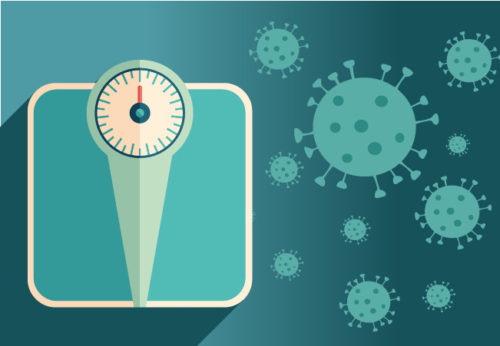December 16th, 2021
Data from the Johns Hopkins Coronavirus Resource Center marked a terrible milestone yesterday: 800,000 deaths from COVID-19 in the United States in just under 24 months. Let’s remember that one year ago on December 14, 2020, the day when the very first vaccine was given in the U.S., more than 300,000 Americans had already died. Despite the easy availability of three different vaccines — all of which have been proven remarkably safe and effective in preventing serious illnesses and deaths from COVID — and the development of new therapies to treat sick patients, another half-million have succumbed to the disease in the last 12 months.
Why? One reason is that despite excellent uptake of the vaccines by the American public (today, 77% of those 5 and over who are eligible to receive a COVID vaccine have received one shot; 65% have received two doses), there is still considerable vaccine hesitancy and outright refusal in a large enough percentage of the population to block the herd from ending the pandemic. A second reason is that the U.S. population is getting older, and sicker, too.
Throughout the pandemic, we’ve learned (the hard way, unfortunately) who among us is more susceptible to serious infections, complications, and death from COVID-19. It’s a long list. Cancer patients, people with chronic kidney and chronic liver disease, dementia, diabetes, and immune dysfunction have suffered more than people without chronic disease. We now understand that pregnancy is a major risk factor in women, and that all women who are pregnant, trying to get pregnant, or who someday wish to have children should receive vaccinations expeditiously.
Poor physical health alone doesn’t account for all the poor outcomes. People who suffer with mental health conditions are also at high risk of complications and death from COVID-19.
Ethnic and racial disparities within our society account for many bad outcomes, and people living every day with physical and cognitive disabilities have a higher risk of getting sick and dying from the virus.
The elderly have obviously taken the biggest hit from SARS-CoV-2. According to the CDC COVID Data Tracker, roughly three-quarters (76%) of all deaths from COVID-19 have occurred in people 65 and older, individuals whose immune systems may not mount strong enough defenses or respond robustly with protective antibodies from the vaccines.
We’ve known since the beginning of the pandemic that people with chronic lung conditions are more vulnerable, since coronavirus is first and foremost a respiratory pathogen that can cause damage to the deepest parts of the lungs. But the virus has a talent for finding other organs and tissues in which it creates chaos. People with pre-existing heart conditions and high blood pressure are at high risk of experiencing complications because of the harm the virus can do inside of blood vessels.
We also know that the risk of severe COVID-19 and death is related to a person’s body mass index: the higher the BMI, the higher the risk. And now researchers have an idea about what makes the risk so high in people with excess body fat. Carolyn Crist reveals new research showing that coronavirus directly attacks fat cells before affecting neighboring tissues:
The coronavirus infects fat cells and certain immune cells within body fat, creating an immune response that could lead to major damage, according to a recent preprint study.
The finding could explain why those who are overweight or obese face higher risks for severe illness and death from COVID-19. The study hasn’t yet been peer-reviewed or published in a journal, but it offers insight into why some patients are vulnerable, even if they don’t have any other risks or conditions.
The findings may explain the poor prognosis in individuals with obesity and COVID-19, and a reason why symptoms may persist well beyond the acute infection in survivors:
The coronavirus appears to evade the body’s immune defenses and “hang out” in fat tissue, which allows it to replicate and trigger a severe immune response, David Kass, MD, a professor of cardiology at Johns Hopkins Medicine, told the Times.
“If you really are very obese, fat is the biggest single organ in your body,” he said.
The coronavirus “can infect that tissue and actually reside there,” he continued. “Whether it hurts it, kills it, or at best, it’s a place to amplify it — it doesn’t matter. It becomes kind of a reservoir.”
The infected body fat could contribute to “long COVID,” which has led to symptoms that last for weeks or months after someone has recovered from a coronavirus infection, the study authors wrote.
74% of American adults are either overweight or obese, according to the CDC. That means 3 out of 4 are likely to find themselves in serious trouble if they get infected with coronavirus, even before considering additional comorbidities. Maybe that helps explain 800,000 dead Americans in two years, just as the pandemic revs up in time for the holidays, with the Omicron variant aiming to overtake Delta as the dominant strain. The study shows where our attention should be focused:
“This paper is another wake-up call for the medical profession and public health to look more deeply into the issues of overweight and obese individuals, and the treatments and vaccines we’re giving them,” Barry Popkin, PhD, an obesity researcher at the University of North Carolina at Chapel Hill who has studied COVID-19 risks for overweight and obese patients, told the newspaper.
“We keep documenting the risk that they have, but we still aren’t addressing it,” he said.




































